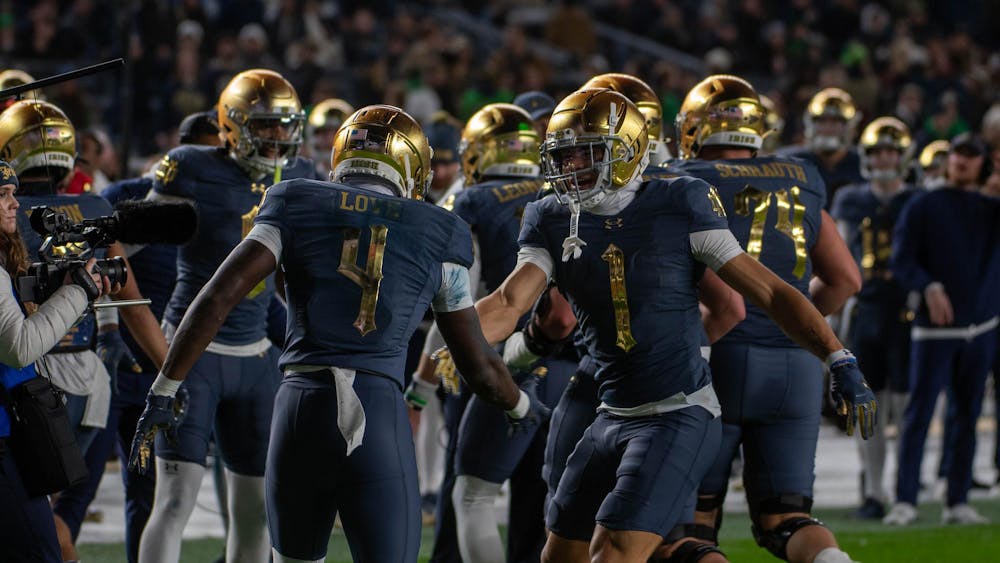The American Studies department hosted a community gathering via Zoom on Monday to discuss race and the current social climate in America. There were 79 participants, including students, professors, alumni and other community members.
The conversation was a reflection of worldwide resurgence of the Black Lives Matter movement in light of the killing of George Floyd as well as countless other victims of police brutality. Attendees also discussed what the Notre Dame community can do now, why voting in November matters and how people can continue to be allies after the news coverage dies down, among other topics.
Visiting assistant teaching professor Peter Cajka served as the gathering’s moderator and began the discussion by introducing recent Notre Dame alumni Irla Atanda and Bailey Kendall. Atanda characterized the climate today as the nation “awakening from its colorblind slumber,” and the two held a moment of silence to honor the lives of the innocent who have died.
In this moment in history, Kendall said she believes everyone has a role to play in creating a better system. Four guest speakers then offered insight highlighting the structural injustices rampant in American society.
Assistant professor of American Studies Korey Garibaldi, a native of Minneapolis, discussed racial injustice in the context of American capitalism and integration.
“My hometown now is suddenly popular for all the wrong reasons, for the racial injustice has been happening for over several decades,” Garibaldi said.
Garibaldi said considering the way race is and has been seen in America and actively working against racism is important right now.
“Challenging the ways we reinscribe race, ... we have to look at these strategies seriously because what has manifested after the civil rights movement is why we’re at the moment that we are at now,” Garibaldi said.
Theresa Azemar, a rising senior double majoring in American Studies and English, offered some of her personal experiences, discussing race as well as the perspective she has gained from being an active member of Show Some Skin, Notre Dame’s annual student-run production that gives voice to unspoken narratives about identity and difference.
“Show Some Skin’s promise of anonymity has empowered so many, brought justice and advocated for change,” Azemar said.
Outside of Show Some Skin though, she said she does not see as many people voicing their opinions on the same topics and calling for change.
“It’s easiest to be in the audience of the show and watch these conversations unfold, ... but it’s also my request that we bring others to do the same,” Azemar said.
Incoming American Studies chair and associate professor Jason Ruiz spoke about the misconceptions many students have when they pick up the American Studies major.
“When we get students in American Studies, it’s very, very hard for them to let go of those powerful narratives of the United States as a cradle of democracy, as a cradle of egalitarianism and equality,” Ruiz said.
Over time though, Ruiz said he sees this mentality start the change.
“One of the things I’m really seeing coming out of social media and other facets of demonstrations is people are starting to question every institution to which they belong,” he said. “They’re starting to ask, do the institutions to which I belong, … are they on the side of racial justice?”
Associate professor of American studies and director of undergraduate studies Perin Gurel praised the statement and call to action a coalition of Black clubs at the University wrote to the Notre Dame community.
“The wonderful, insightful open letter that the Black Student Association put out, that needs to be required reading for everyone associated with Notre Dame, really reminded us of the power of listening,” Gurel said.
Read More
Trending









